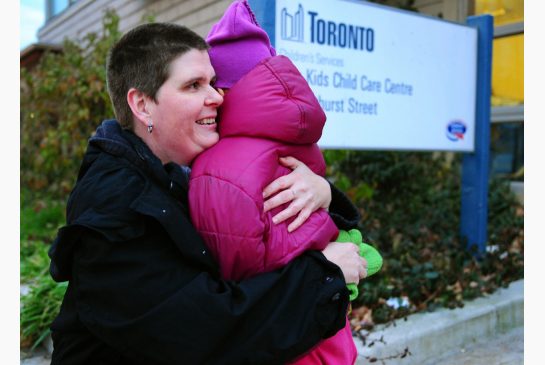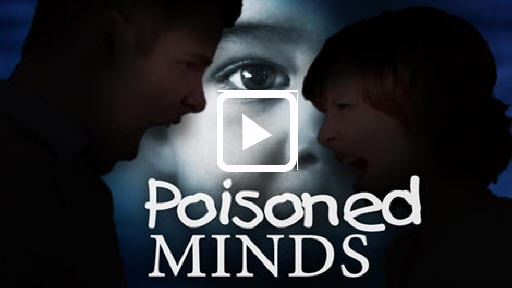![]()
Good parenting key to breaking cycle of poverty
The one sure predictor for success among children from poor families is a strong relationship with an adult.
Toronto Star, Opinion / Commentary, Nicole Letourneau / Justin Joschko Saturday October 26, 2013
 Â
Â
Toronto mom Becky McFarlane, seen here with daughter Levia, is one of 3 million Canadians who grew up in poverty, escaped it and now is struggling to keep away money problems.
more than one in seven Canadian children currently lives in poverty. That number has climbed steadily since the 1990s, and comes with very real consequences - both social and economic.
Children raised in poverty suffer from a disproportionate amount of health problems, have less education and are more likely to live in poverty as adults. This in turn hurts our economy, as we struggle with higher rates of crime and joblessness, steeper health care costs, fewer income taxes and a sagging social safety net.
All told, poverty has been calculated to cost Canada $72-$84 billion a year - that's between $2,299 and $2,895 per Canadian annually.
Unfortunately, poverty is as complex as it is costly, and our attempts to eliminate it have met with limited success. Yet there is cause for hope. As we come to better understand why child poverty leads to such poor outcomes - what precise factors are at play - it becomes easier to develop real and lasting solutions.
In our new book, Scientific Parenting, we highlight a recent meta-analysis that Nicole Letourneau and her team published analyzing the results of every study we could find that looked at the relationship between families' socio-economic status and their children's intellectual and behavioural development. At first glance, poverty seemed to affect how well children behaved or did in school. But the closer we looked, the less direct this connection appeared.
The main culprits were manifold, but most of them - such as home environment, parental attentiveness, discipline, community safety, postpartum depression, increased life stress, family support and exposure to violence - had to do primarily with the capacity of children's parents. Regardless of the family's budget, children who had loving, engaged caregivers were better off than those who didn't.
Of course, it's far more difficult for those living in poverty to be that kind of caregiver. For some, simply meeting kids' basic needs - food, clothing, shelter - can be overwhelming, leaving little time and energy to meet their often obscure intellectual and emotional needs. Yet these requirements, invisible or not, are vital to children's long-term development, and not meeting them causes untold damage.
In this sense, the greatest challenge children face isn't financial poverty, but relational poverty.
Relational poverty means a lack of the interaction, affection and play that provide vital stimulation to infants' rapidly developing brains. Children experience a neural growth spurt that allows them to absorb new skills and behaviours with phenomenal speed. It also leaves them vulnerable to stress, as even small issues can leave deep prints in their pliable minds.
Supportive adults act as a sort of buffer, protecting young children's minds until their neural growth rate slows and their brains become more durable. The trouble is that children on the low end of the socioeconomic spectrum are less likely to get this support and more likely to encounter toxic levels of day-to-day stress, which is why poverty and poor outcomes for children often align.
But they don't have to.
Caregivers don't need great riches to support their children. A strong, supportive adult figure can help children overcome otherwise unhealthy environments. This figure need not even be the child's parents (though of course this helps). A grandparent, an aunt, a family friend, even a dedicated teacher can have a tangible, long-lasting impact on a child's development.
This is the one sure predictor for success among children from poor families: a strong relationship with an adult.
To prevent the social and economic consequences of child poverty, we need to work with poor families. Changing public policy to better address basic needs for job security, living wages and adequate housing is essential.
But just as important are programs targeted specifically at parenting.
We need a more proactive postnatal outreach system, one that teaches basic parenting and child-bonding skills, one that can reach out to parents at home if necessary and can be tailored to the needs of different families. If we put such programs in place, more children from impoverished homes will gain the tools needed to break the cycle of poverty.
A better chance to succeed means a better opportunity to contribute. And as more children rise to the occasion, our country will grow stronger, happier, and more successful. And that helps all of us.
Nicole Letourneau is an expert advisor with EvidenceNetwork.ca and a professor in the Faculties of Nursing and Medicine at the University of Calgary. Justin Joschko is a freelance writer in Ottawa. Their co-authored book, Scientific Parenting, has just been released by Dundurn Press.





